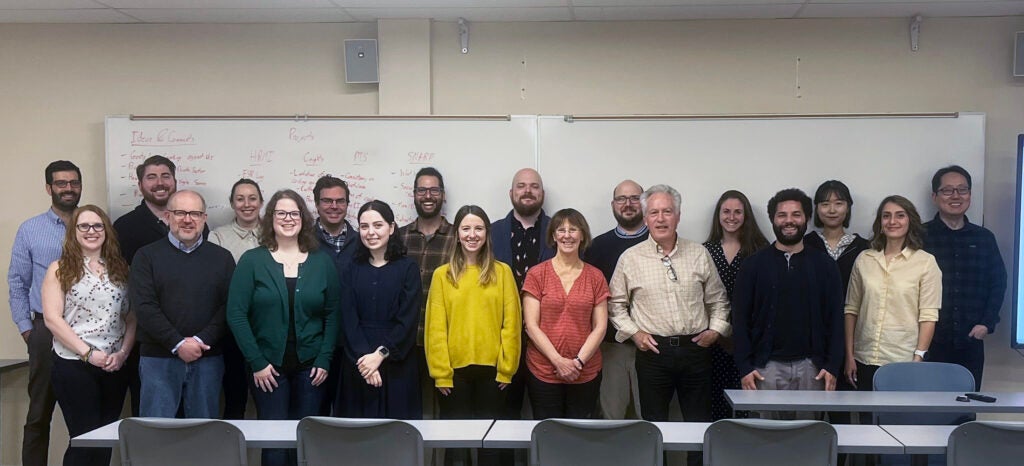KINGSTON, R.I. – May 15, 2023 – Scholars and researchers from around the country gathered at the University of Rhode Island last week to discuss the techniques used to measure respect for human rights worldwide. The two-day Human Rights Measurement Workshop, held at URI’s Providence campus, was sponsored by the College of Arts and Sciences and the Center for Nonviolence and Peace Studies.

“The goal was to bring experts in human rights measurement together to talk about the projects they’re working on—where they overlap and how they can complement each other,” said Skip Mark, an assistant professor of political science at URI and co-organizer of the conference. “Ultimately, getting better at measuring rights puts us in a better position to advocate for improving human rights worldwide.”
To study respect for human rights, scholars draw on information compiled by government agencies like the U.S. State Department, human rights non-profits, and other non-governmental organizations. But there are myriad challenges involved in objectively analyzing human rights, Mark says.
One challenge is developing appropriate quantitative measures that help researchers to compare respect for human rights across nations and over time. Another challenge is understanding the biases inherent in various data sources—and finding ways to overcome them. The sheer volume of data to comb through is also an issue, as researchers try to evaluate wide range of rights—including economic, physical integrity, Indigenous rights, and more—all over the world.
“We brought together the biggest human rights measurement projects in the country,” Mark said. “There has been a desperate need to create a space for scholars who study human rights measurement to get together and identify overlap and gaps in our knowledge.”
URI is home to one of those large human rights projects. Led by Mark, the CIRIGHTS project is currently the largest quantitative database on human rights, currently measuring 77 recognized human rights in all of the world’s 195 countries. Other projects represented were the Human Rights Measurement Initiative, which measures five economic and social rights and eight civil and political rights in nations around the world; the Sub-National Analysis of Repression Project, which measures human rights in different regions within countries; and the Political Terror Scale (and an affiliated project called the Societal Violence Scale), which has tracked international human rights violations since the 1980s.
Panelists included researchers from the University of Arizona, University of Connecticut, University of Georgia, and elsewhere.
The group discussed both longstanding and emerging challenges in the human rights measurement field. Topics included the differences in evaluating economic rights as opposed to rights related to violence or physical integrity, the use of machine learning to analyze human rights reports, and methods for getting the most information out data sources like U.S. State Department and NGO reports.
Mark said that the discussions were productive and the researchers made plans to continue collaborating. The group plans to develop a new online colloquium for human rights measurement, propose a miniconference with the Peace Science Society, and develop a collection of syllabi aimed at sharing human rights education resources more broadly.
“The workshop created a lot of positivity and support for everyone in attendance, which is not always present in academic circles especially for younger scholars,” Mark said. “There is a renewed motivation and sense of excitement to continue working on big questions about how we identify and document violations when they occur and what we can do to improve human rights around the globe and here in the U.S.”
